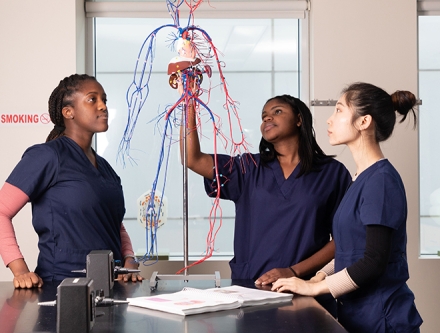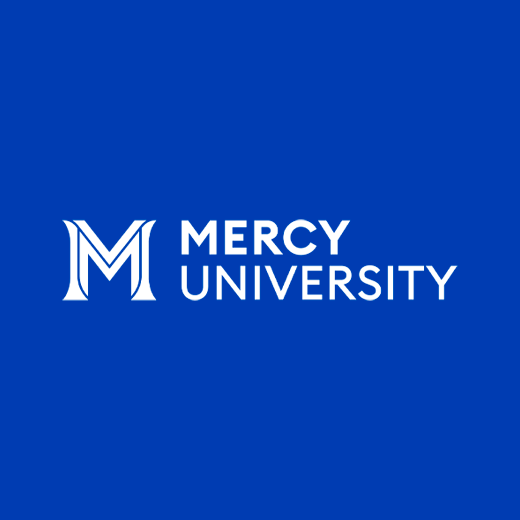
Nursing - Traditional Program
- 122 Credits
- School of Nursing
- Westchester

Nursing - Traditional Program Overview
The Traditional 4-Year Nursing Program is designed to provide education in preparation for licensure and professional nursing practice. The program offers traditional face-to-face classes. Clinical learning experiences will be conducted via a state-of-the-art simulation laboratory as well as traditional, hands-on, instructor-supervised training in Westchester County and New York City health care facilities.
This education experience will provide the preparation needed for the challenging and diverse health care needs of our community and throughout the United States. Upon successful completion, students will earn a baccalaureate degree, be eligible to take the and be qualified for admission to graduate nursing programs.

The Mercy Advantage
- Highly interactive mannequins are housed in the Clinical Skills and Simulation Lab, which students utilize in order to gain experience, refine fundamental skills, establish priorities and safely apply learned concepts
- Experienced dedicated and caring faculty with clinical certifications and expertise in designated specialties

Career Opportunities
Job growth for registered nurses is increasing faster than average, and evolving health care demands in the US promise continued growth. Registered nurses provide care in a variety of settings and can make a significant impact on individuals, families, and communities while advancing healthcare for all. Join us and be part of healthcare's solution! Together, we can help address health disparities and promote health equity for all.
Our graduates will be able to provide nursing care in a variety of setting and positions
- Acute Care
- Outpatient Clinics
- Home Health
- Rural Health
- TeleHealth
- Managed Care
- Public Health
- Infection Control
- Forensic Nursing
- School Nurse

Interprofessional Education in Simulation Labs
Students from various health professions work with a simulated patient (a student actor from the University) in one of the simulation labs. These interprofessional experiences help students learn about other professions’ roles and responsibilities, values and ethics, and teamwork. These simulated experiences prepare them for their real-world clinical experiences.
Want More Info?
We'd like to hear from you! Get more information.








































